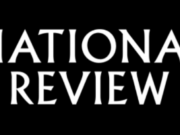Imagine you are a Republican.
Would you agree to let the rules of political campaigns be written by a partisan committee selected by Barack Obama? Or if you’re a Democrat, do you think Donald Trump should be able to appoint a partisan majority to determine the rules?
Of course not. That’s why for over 40 years, Republicans and Democrats have agreed campaign regulations should be enforced by an independent, bipartisan agency. The Watergate scandal that forced Richard Nixon to resign the presidency showed the dangers of allowing one party to use the power of government against the other. In the aftermath, the Federal Election Commission was created to make sure future administrations could not abuse campaign regulations to bludgeon their opponents.
But today the FEC is under attack from members of Congress whose misguided proposal to “reform” the agency could take us back to the Watergate era. A bill co-sponsored by Rep. Ken Buck, R-Colo., would shrink the agency from six commissioners to five. That may sound like a minor change, but it has huge implications.
Right now, Republicans and Democrats have equal influence over the commission. With six commissioners, at least one vote from each side is needed to write new rules or open investigations. In the five-commissioner agency envisioned by Congressman Buck, one party will consistently trump the other.
Buck’s proposal would give the president the power to choose the pivotal fifth vote. In theory, no more than two commissioners could be from the same party, so no party would have a majority. But that would be illusory. For example, a Democratic president could appoint Socialist U.S. Senator Bernie Sanders; Donald Trump could appoint a registered Independent, such as his daughter Ivanka. The president would also name one commissioner to a 10-year term as chairman, meaning the disadvantaged party will spend a full decade on the losing end, even if it managed to win the presidency in between. The result, before long, will be a partisan agency not trusted by roughly half of Americans.
This is exactly what happened when another agency tried to get involved in campaign regulation without protections for both sides. The crux of the IRS targeting scandal was an effort to use an agency under the president’s control to harass his party’s political opposition. Under immense pressure from left-wing groups, Democratic senators, and a Democratic president, the IRS started systematically investigating conservative groups more stringently than their liberal counterparts. Without the bipartisan structure of the current FEC, Republicans were unable to stop it.
Congressman Buck and the “good government” groups supporting a partisan-dominated FEC claim the change is needed to improve enforcement. More likely, it will have the opposite effect. Just as the IRS scandal further sullied the service’s reputation, who would trust or have confidence in the decisions of an FEC under partisan-Democrat control investigating Republican campaigns, or vice versa?
Proponents justify this radical change by pointing to gridlock at the FEC. But in fact, the FEC usually reaches a majority vote except on controversial cases — CCP’s 2015 analysis found 93 percent of FEC decisions were bipartisan. And not all gridlock is bad. A six-member commission with three votes on each side was designed to allow gridlock when the parties are in firm disagreement over whether campaign finance laws were violated.
The FEC has its problems, but they have been greatly exaggerated by a media campaign intended to discredit the agency in order to make way for a more aggressive, overtly partisan model of campaign regulation. The organizations pushing to overhaul the FEC are the same ones that urged the IRS to police speech a few years ago. Their goal is to make the political process more punishing, not more just.
Bipartisanship is not easy. It requires both sides to recognize they will not always get their way. But for 40 years, Republicans and Democrats were able to do it. Throwing that away and simply hoping a new agency will side with your party is reckless and an enormous threat to the First Amendment. For the good of both parties — and for the good of the nation — we should preserve, not dismantle, bipartisanship at the FEC.
This post originally ran in The Greeley Tribune on May 11th 2017.














